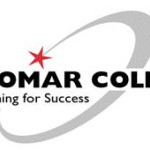- Industrie: Education
- Number of terms: 12355
- Number of blossaries: 0
- Company Profile:
Founded in 1946, Palomar College is a public two-year community college in the city of San Marcos, located in north San Diego County, California. Palomar offers over 300 associate degree, certificate programs and is designated by the U.S. Department of Education as an Hispanic-Serving Institution ...
The clumping together of red cells in blood as a result of antibodies attaching to antigens on the surface of the cells. This occurs when blood of incompatible types is mixed together outside of the body, as for example during blood typing. When different types of blood come into contact within the body as a result of a mismatched transfusion, the alien red cells usually burst instead of agglutinate.
Industry:Anthropology
The class of vertebrates that includes frogs, toads, and salamanders. Amphibians spend part of their lives under water and part on land. They must return to damp areas to reproduce since their eggs would otherwise dry out. They start life with gills, like fish, and later develop lungs to breath air.
Industry:Anthropology
The chordate characteristic of the left and right sides of the body being mirror images of each other. If there are two functionally similar body parts, they are usually found roughly equidistant from the center line, parallel to each other on bilaterally symmetrical animals.
Industry:Anthropology
The chemical and physical processes continuously going on in the cells of living organisms. These are the processes by which energy and matter are made available for use by the cells of an organism. Heat is a byproduct of metabolism.
Industry:Anthropology
The characteristic of allowing only certain things to pass through. Cell and nuclear membranes are selectively permeable.
Industry:Anthropology
The cell division process in specialized tissues of female ovaries and male testes which results in the production of sex cells, or gametes. Meiosis involves two divisions and produces four sperm cells in males and one ovum in females from a starting cell. Each sperm and ovum contains only half the original number of chromosomes--23 in the case of humans. Subsequently, meiosis is also called "reduction division. " Spermatogenesis is the term used for meiosis in males and oögenesis refers to the same process in females. See mitosis.
Industry:Anthropology
The branching pattern of evolution resulting from adaptive radiation.
Industry:Anthropology
The bowl-shaped ring of bones in the hip region at the base of the torso, supporting the spinal column and resting on the legs. It is also referred to as the pelvic girdle.
Industry:Anthropology
The biological order that includes all humans, apes, monkeys, and prosimians, and closely related animals.
Industry:Anthropology
